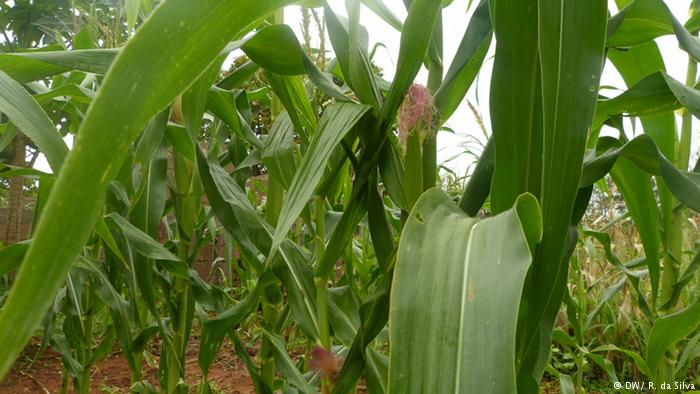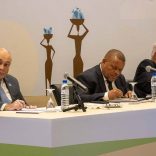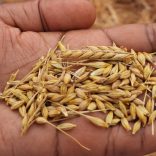Mozambique: Automated forestry licensing begins
Civil society organizations from Mozambique, Brazil and Japan reiterate opposition to ProSavana

DW (File photo)
Civil society organisations from Mozambique, Brazil and Japan met in Maputo to reiterate their rejection of ProSavana, saying the initiative will size land from millions of peasants.
Speaking to the media on the fringes of the 3rd People’s Triangular Conference of Mozambique, Brazil and Japan, Vanessa Cabanelas, coordinator for land, ecosystems and livelihoods at the Mozambican NGO Justiça Ambiental, said the three governments have ignored appeals to rethink the programme.
“Civil society has been protesting against this programme, the way it was introduced, what is needed and the model of development,” Cabanelas said. ProSavana would expropriate land from small farmers and result in hunger, since it was agribusiness monoculture demanding exclusive use of large tracts of land.
“It is not to produce food for Mozambique, it will not ensure Mozambique’s food sovereignty,” but would only serve “the export of products, such as soy,” she said
Food insecurity?

Cabanelas said ProSavana would affect the lives of about 4.5 million people living along the Nacala Corridor, which runs through the provinces of central and northern regions of Mozambique.
Sheila Rafique, project coordinator for Mozambican NGO Livaningo, says ProSavana, a programme imported from Brazil and Japan, will degrade the soils of the Nacala Corridor and cause food insecurity.
“We say no, because it is an imported programme and is not built with the farmers. It requires large tracts of land and could contaminate the environment. It will cause food insecurity and will remove real food and produce ‘commodities’ instead,” she said.
Commenting on civil society organisations’ concerns, ProSavana coordinator in the Ministry of Agriculture and Food Security of Mozambique António Limbau said it was a mistake to draw conclusions about the initiative, because its master plan had not yet been drawn up.
“The third phase of ProSavana is the drawing up of the master plan, which does not exist yet. Consequently it is premature to say that there will be a land grab,” he said.
Limbau said he considered apprehension regarding ProSavana natural, but insisted any doubts about the initiative would be cleared up by the master plan.

Government says ProSavana will not impose monoculture
The Mozambican Ministry of Agriculture and Food Security will coordinate the ProSavana programme, and insists it will respect food crops and will not impose monoculture.
“The development of monocultures is not foreseen. It is a mistake. What is foreseen is improving the income of farmers in those agricultural units,” Limbau told reporters.

Preservation of food crops
Limbau said the tripartite initiative would not disrupt the crops that are already being produced by the farmers.
At the moment, Limbau continued, ProSavana was in the technical cooperation phase, consisting of the development of technologies to be used during the implementation of the programme.
The project will next go on to the experiential phase concerning the various models of agrarian development in Mozambique, so as to identify the best standard for ProSavana to proceed within.












Leave a Reply
Be the First to Comment!
You must be logged in to post a comment.
You must be logged in to post a comment.